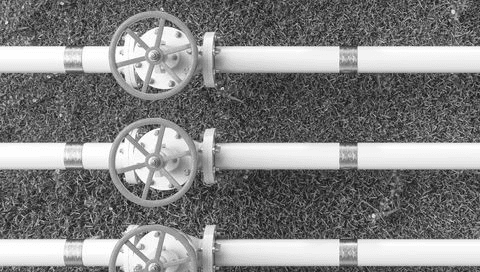On July 9, 2024, the U.S. Court of the Appeals for the D.C. Circuit held that the Federal Energy Regulatory Commission (FERC or the Commission) erred in ordering refunds for certain bilateral spot market transactions in the Western Energy Coordinating Council (WECC) region that exceeded the $1,000/megawatt-hour (MWh) “soft” price cap for such sales.1 Finding FERC failed to conduct a “Mobile-Sierra public-interest analysis” before “altering” those contracts by ordering refunds, the court vacated FERC’s orders and remanded the case to FERC for further proceedings.2
The D.C. Circuit’s decision will require the Commission to modify its policies respecting the justification of sales made at prices above $1,000/MWh. Although FERC will have an opportunity to provide its view on the implications of the court’s decision on remand, the D.C. Circuit’s determination that the Commission was required to conduct a Mobile-Sierra public interest analysis prior to ordering refunds should provide sellers with greater certainty that their transactions will not be subject to refund when tight market conditions or extreme weather events push prevailing market prices above the soft cap. Entities participating in western bilateral markets should follow the actions that the Commission takes on remand, which will have important implications for the risks that sellers face when transacting during tight market conditions.
Background
Since 2002, bilateral spot market sales in the WECC region have been subject to a soft offer cap that was adopted in the wake of the California energy crisis to help mitigate the risk of market power. For the purpose of the soft offer cap, spot market sales consist of sales that “are 24 hours or less in duration and that are entered into the day of or the day prior to delivery.”3 Sellers who transact at prices above the soft cap must submit a filing to FERC justifying their sales and, if they are unable to do so, must pay refunds for amounts collected in excess of the soft offer cap.4 Initially set at $250/MWh, the soft offer cap was increased to $1,000/MWh in 2011.5
Until recently, there were limited examples of sellers making filings to report and justify sales made at prices that exceeded the soft offer cap. In 2020, however, dozens of sellers made filings seeking to justify their spot market sales after a summer heat wave drove bilateral prices in the West above the offer cap.6 Following the initial wave of filings submitted after the 2020 heat wave, FERC issued an order outlining how sellers could justify sales above the soft offer cap. That order generally put the burden on sellers to justify the prices they charged based on their production costs, that the prices were consistent with their opportunity costs of foregoing other market opportunities, or that the prices were consistent with prevailing index prices at a relevant market hub.7
Although sellers generally provided evidence demonstrating that their sales were consistent with their costs or prevailing market prices throughout the West, sellers consistently argued that their spot market sales represented “the kind of short-term bilateral power sale contracts that both the Supreme Court and [FERC] have found are subject to the Mobile-Sierra presumption.”8 Under the Mobile-Sierra doctrine, contract rates formed through arms-length, bilateral negotiation are entitled to a presumption of reasonableness that can be overcome only upon a demonstration that the rate “seriously harms the public interest” or that the conditions underlying the presumption do not apply.9
FERC ultimately determined that certain sellers failed to justify their above-cap sales and ordered partial refunds for certain transactions.10 Importantly, FERC rejected the sellers’ argument that the Mobile-Sierra doctrine “dictated approval of their contract prices” and found that “the justification-and-refund inquiry into [the] above-cap sales did not implicate the Mobile-Sierra presumption.”11 Rather, FERC found that the Mobile-Sierra presumption did not preclude it “from enforcing the requirement that sales in excess of the WECC soft price cap must be justified and [we]re subject to refund” and that it was “not modifying the contracts, as would trigger application of the Mobile-Sierra presumption, . . . but was instead enforcing requirements incorporated into the contracts via [FERC’s] orders establishing the price cap and provisions in [the sellers’] market-based rate tariff[s].”12
On appeal, sellers subject to refunds argued that FERC “erred by failing to conduct any Mobile-Sierra analysis prior to ordering refunds,” which altered their freely negotiated contract rates “without first finding that those rates seriously harm[ed] the public interest.”13 Certain consumer-side interests also appealed, arguing that FERC had “committed errors in calculating the [s]ellers’ refunds that [would] lead to higher electricity prices in the future.”14
Holding
The court agreed with the sellers that FERC “should have conducted the Mobile-Sierra analysis prior to ordering refunds,” vacated FERC’s justification and refund orders, and remanded the case to FERC for further proceedings.15 Relying on the Mobile-Sierra principle that FERC “may modify a contracted-for rate if (but only if) the ‘public interest’ so requires,” the court found that “[t]here is no dispute . . . that the rates for which FERC ordered refunds were rates for which the [s]ellers and their customers had mutually contracted in a competitive marketplace.”16 Yet, FERC failed to “perform any Mobile-Sierra public-interest analysis before altering those negotiated rates by ordering the refunds at issue.”17
The court reasoned that, even if FERC’s orders implementing the soft cap were incorporated into the sellers’ market-based rate tariffs and the relevant contracts, FERC “did not displace the Mobile-Sierra presumption in [those orders], and so that presumption continues to apply to the [s]ellers’ contracts.”18 FERC’s soft cap orders, to the extent incorporated into the sellers’ market-based rate tariffs that represent the “filed rate” for the relevant sales, “left intact” FERC’s burden of overcoming the presumption that freely negotiated wholesale energy contracts meet the Federal Power Act requirement that their rates must be “just and reasonable.”19
In the court’s view, rather than “remov[ing] prospectively an entire class of bilateral contracts from the Mobile-Sierra framework,” the soft cap “is best viewed as a means of flagging for [FERC] contracts that may warrant a public-interest analysis” and is “best read . . . as functioning in tandem with the Mobile-Sierra doctrine,” not “displac[ing] the presumption that for nearly seventy years has been the ‘default rule’ in analyzing the justness and reasonableness of freely negotiated contract rates.”20 As such, under the Mobile-Sierra doctrine, FERC “can carry that burden” and order refunds for covered transactions “only by making a particularized finding that a given contract ‘seriously harms the public interest,’ . . . even if that contract’s price exceeds the soft cap, or can avoid that inquiry by demonstrating that the Mobile-Sierra presumption should not apply at all . . . .”21 Here the court found that FERC did not make either determination and, therefore, its refund orders were unlawful.22
Implications
Although FERC must still decide how to implement the Shell decision on remand, it is clear that the court’s decision will necessitate changes to the framework that FERC uses to evaluate sales at prices that exceed the soft offer cap. By determining that FERC must conduct a Mobile-Sierra review prior to ordering refunds, the court’s decision appears to require that FERC presume that the prices agreed to by parties in a freely negotiated spot market sale “meet[] the ‘just and reasonable’ requirement imposed by law” and only order refunds if FERC concludes that the contract “seriously harms the public interest.”
It is important to note that the court’s determination was based in part on its finding that FERC had not expressed an intent when adopting the soft offer cap to exempt bilateral transactions from the benefits of the Mobile-Sierra presumption. And the court expressly declined to rule on the issue of whether FERC could preemptively remove a class of freely negotiated bilateral wholesale energy contracts from the Mobile-Sierra presumption and subject parties to the type of “justification-and-refund scheme” that FERC applied in its orders addressing the justification filings submitted by sellers. This leaves open the possibility that FERC may seek to limit the impact of the court’s order by amending the soft offer cap framework to expressly disclaim application of the Mobile-Sierra presumption.
1 Shell Energy N. Am. (US), L.P. v. FERC, No. 22-1116 (D.C. Cir. July 9, 2024) (the Opinion).
2 Id. at 4, 16, 22.
3 Id. at 9 n.3.
4 Id. at 3.
5 W. Elec. Coordinating Council, 133 FERC ¶ 61,026 at P 15 (2010).
6 Opinion at 3, 20.
7 ConocoPhillips Co., 175 FERC ¶ 61,226 (2021).
8 Opinion at 11 (internal quotation marks omitted).
9 Id. at 3-4.
10 Id. at 3, 12.
11 Id. at 3, 13.
12 Id. at 13 (internal quotation marks omitted).
13 Id. at 4, 13.
14 Id. at 4.
15 Id.
16 Id. at 16.
17 Id.
18 Id. at 17.
19 Id. at 18 (internal quotation marks omitted).
20 Id. at 18-19.
21 Id. at 18.
22 Id.



